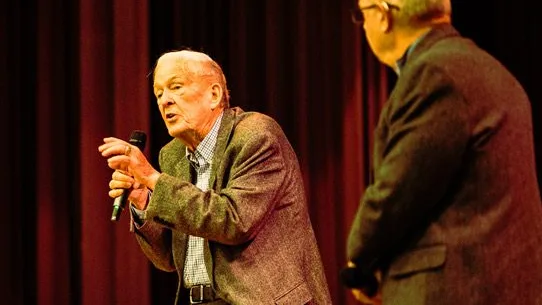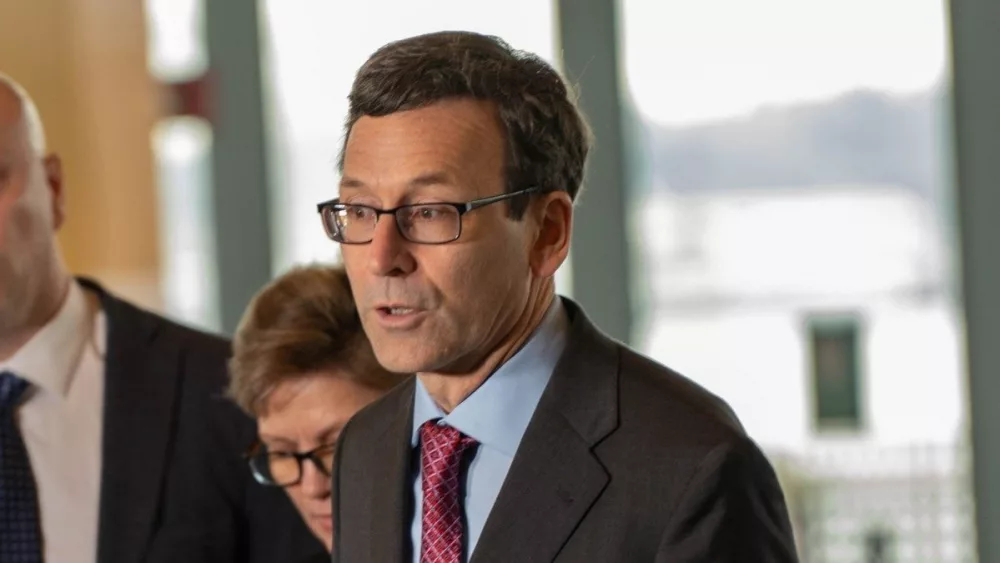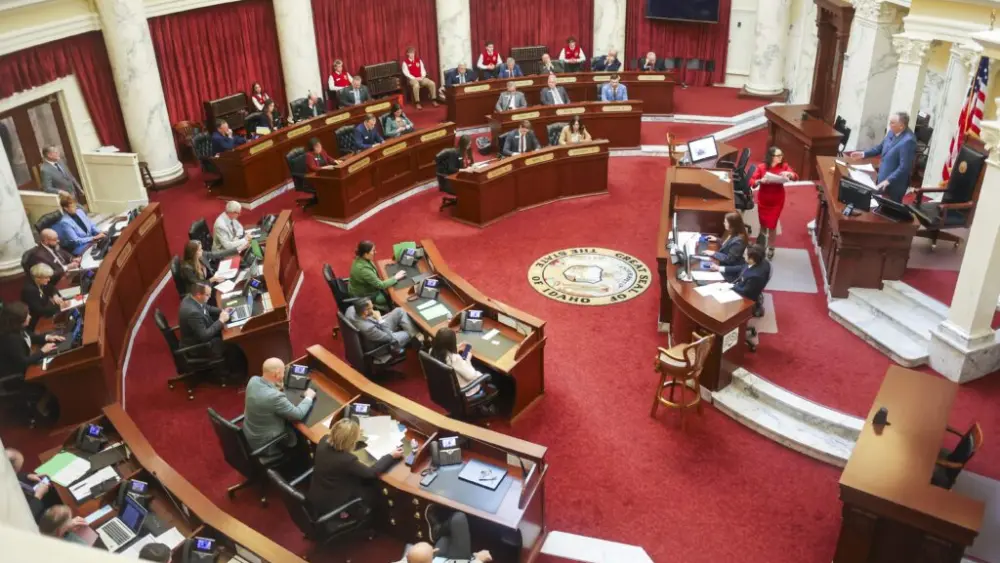POCATELLO, ID – Former Idaho Democratic Congressman Richard Stallings died at his home in Pocatello on Sunday. He was 85.
Stallings served in the U.S. House of Representatives from 1985 to 1993. He left the House to run for a U.S. Senate position, and lost the 1992 race to then-Boise Mayor Dirk Kempthorne.
He was then selected by then-President Bill Clinton to serve in the short-lived federal position, U.S. nuclear waste negotiator — a position only held by Stallings and a fellow Idahoan, former Republican state attorney general and lieutenant governor, David Leroy.
Stallings represented Idaho for seven years in U.S. House.
In 1984, Stallings defeated seven-term Republican U.S. Rep. George Hansen by just 133 votes, the Washington Post reported at the time; Hansen had been convicted that year of violating House ethics rules.
Larry LaRocco met Stallings on the campaign trail just prior to that, in 1982 as both Idaho Democrats were making their first bids for Congress.
“He was a true public servant, with a deep sense of historical perspective because of his teaching,” LaRocco told the Idaho Capital Sun in an interview.
Stallings taught history at Ricks College — now called Brigham Young University–Idaho — from 1969 until he was elected in 1984.
LaRocco joined Stallings in Congress in 1990 and said the Pocatello representative distinguished himself as an expert in agricultural policy.
“Whether it was dry-land farming on the Palouse, or irrigated farming in southern Idaho, and all the subsidy programs, he actually represented the whole state very well on ag issues,” LaRocco said. “And the people in his district just loved him because of his knowledge of that.”
Stallings was a moderate Democrat, who was fiscally conservative, a member of The Church of Jesus Christ of Latter-day Saints, and opposed abortion, LaRocco said. Both men supported labor rights and environmental conservation.
Stallings was also very knowledgeable about water rights issues, which were a particular concern to his eastern Idaho district, LaRocco said.
LaRocco said the East Idaho congressman had a way of speaking both plainly and eloquently, and catching people off guard with an unexpected sense of humor.
“He was sort of mild-mannered, and then he’d pop with something that was self-deprecating and really humorous,” LaRocco said.
Bill Clinton selects Stallings selected as nuclear waste negotiator in 1993
Following Stallings’ unsuccessful bid for the U.S. Senate, he was selected by Clinton to head an independent federal agency tasked with finding long-term storage of radioactive waste in the U.S.
The position was created in 1990, when then-President George H. W. Bush nominated Leroy to lead it.
The less-populated Western states were likely placements for the radioactive waste, Leroy said, which is why Idaho officials made sense for the post. As its first nominee, Leroy negotiated with Bush to have the office headquartered in Boise, he said.
When the Clinton administration took over, Leroy left the post and Stallings was recommended by then-former secretary of the interior and Idaho Gov. Cecil D. Andrus.
“Mr. Stallings and I worked on a very important project that still needs conclusion,” Leroy said. “We were both faithful to our obligation to work with Congress and with local governments, tribal leaders, with state politicians, and both made some substantial progress until the office was canceled.”
The office was eliminated in 1995.
Leroy described Stallings as a “warm, friendly man” who was “very serious, committed to his family, and gave a very full day of hard work to his constituents” during his time in Congress.
“Their problems were his problems, and he was faithful on a daily basis to doing anything and everything he could to address the needs for the Second District of Idaho,” he said.
Stallings led Idaho Democratic Party, served on Pocatello City Council, conducted statewide town halls
Stallings served on Pocatello City Council in the early 2000s, according to the Idaho State Journal, and chaired the Idaho Democratic Party from 2005 to 2007.
“Richard reminded us that politics at its best is about people, not power,” current Idaho Democratic Party Chair Lauren Necochea said in an emailed statement. “It is about understanding our neighbors’ struggles and standing up for them. His legacy endures in the leaders he inspired, the communities he strengthened, and the countless Idahoans who saw in him what public service should look like: humble, principled, and tireless in pursuit of the common good. Our hearts are with his family and all who loved him.”
Stallings remained involved in politics, and last winter, called LaRocco to ask if he wanted to tour the state hosting in-person town halls to ask questions to Idaho’s current Congressional delegation. The former congressmen were frustrated that Idaho’s U.S. representatives were not hosting their own in-person town halls.
The events ran late February to May, with 11 in total.
“It was really great just to be on the trail with him again,” LaRocco said.
Stallings was in his 80s, and LaRocco said he’d noticed Stallings’ age catching up with him up until the moment he took up the microphone at each event.
“His political muscle memory just returned, and he just was forceful, he was humorous, he was on top of policy,” LaRocco said.
The men wrote an open letter to the Congressional delegation, published in the Sun, about the concerns they heard during the events.
“He was busy to the very end,” LaRocco said, “being a public servant and being out there and sharing his thoughts and policies.”
Idaho Capital Sun is part of States Newsroom, a nonprofit news network supported by grants and a coalition of donors as a 501c(3) public charity. Idaho Capital Sun maintains editorial independence. Contact Editor Christina Lords for questions: info@idahocapitalsun.com.





